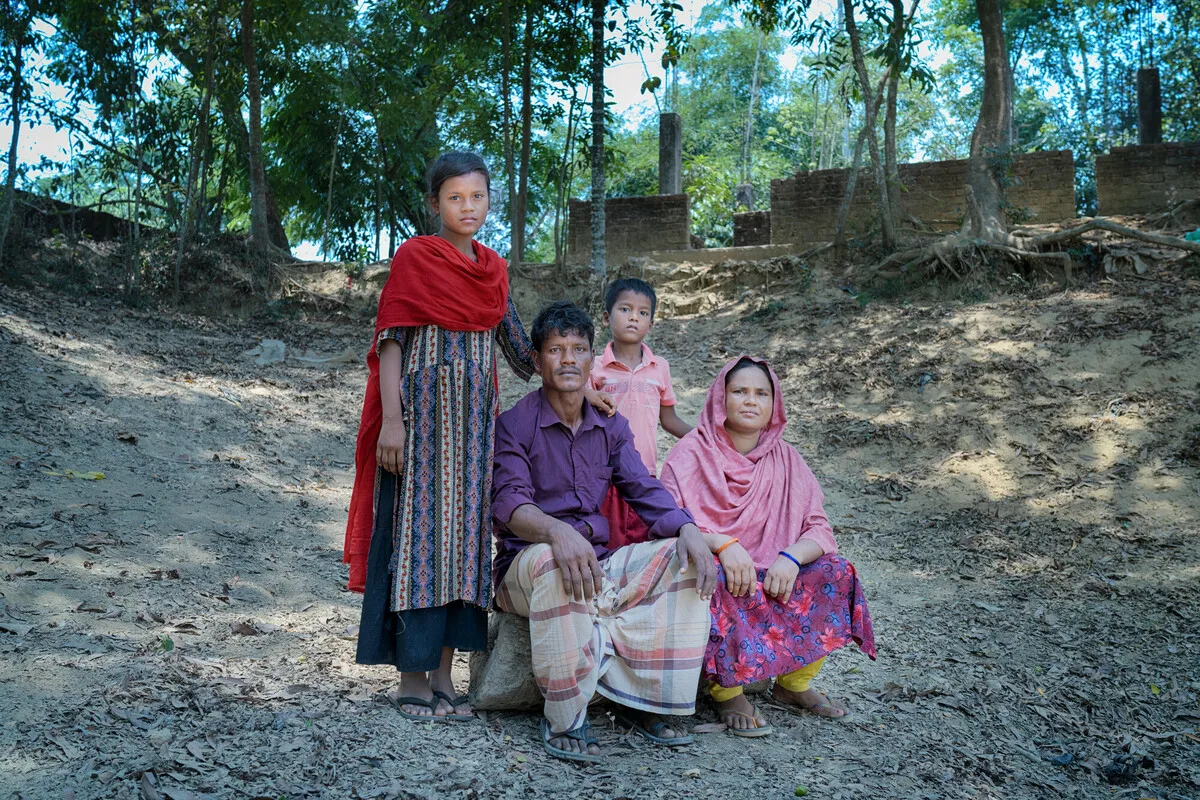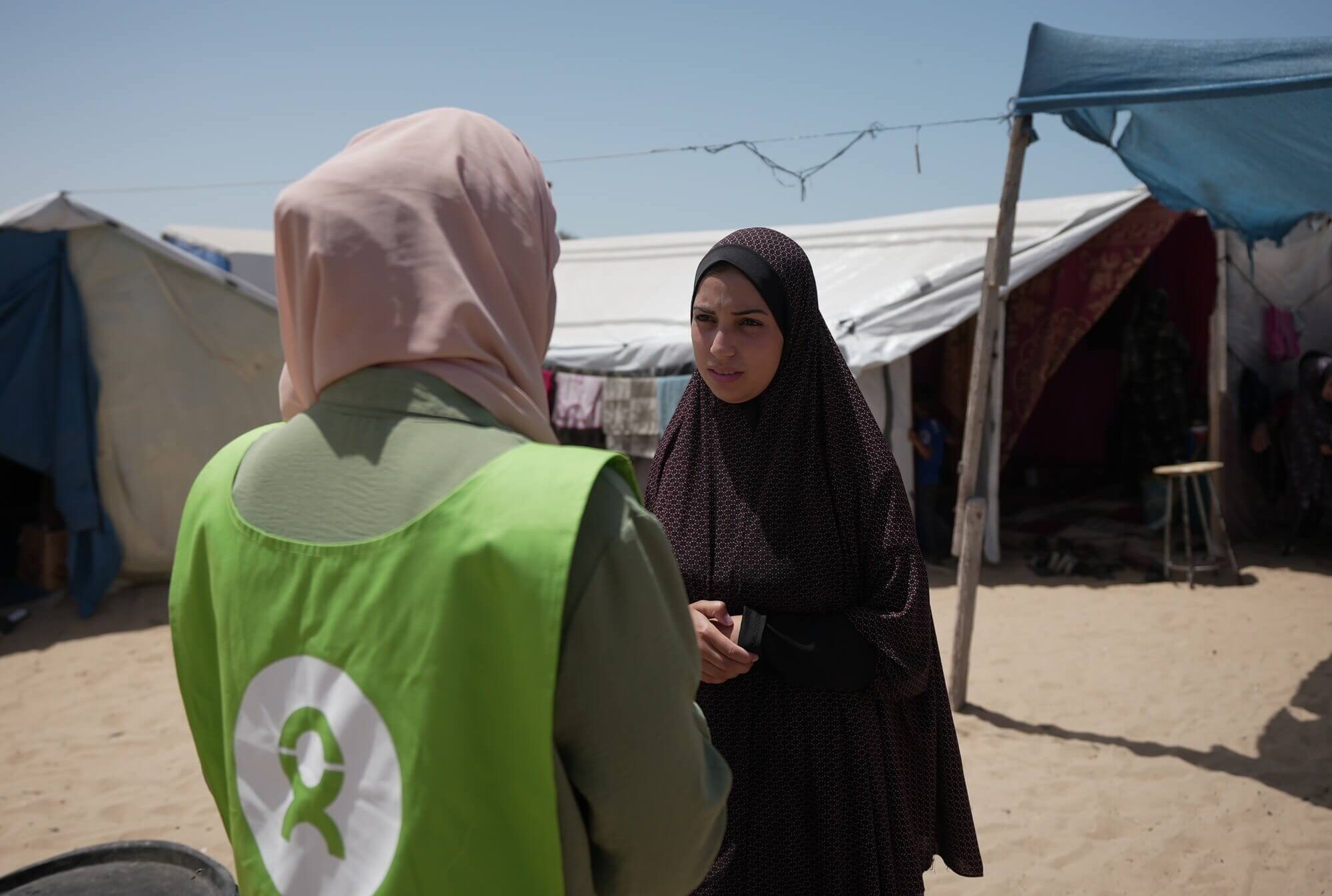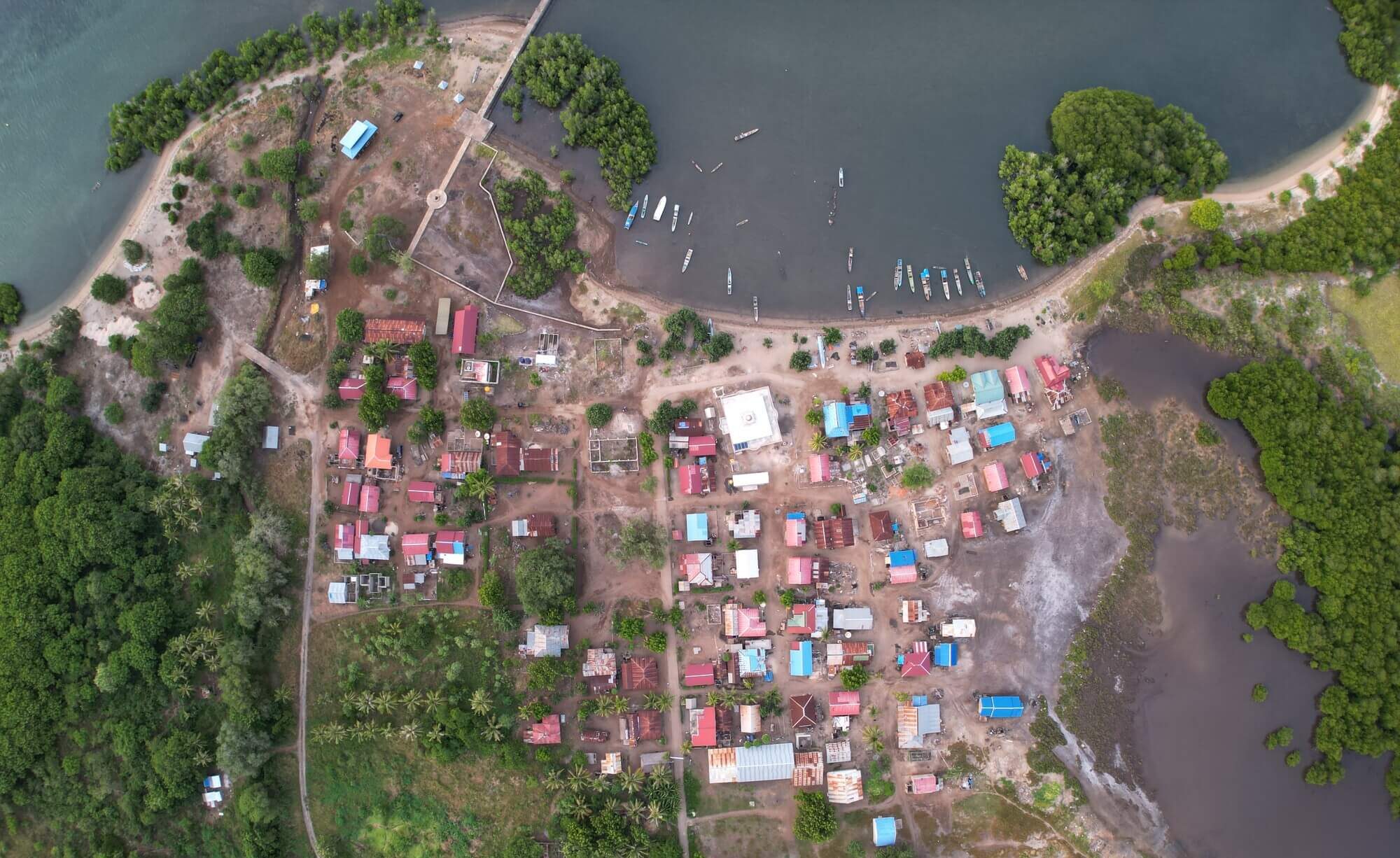It has been over a year since the conflict in Gaza escalated — a year of families living without their homes, their loved ones or the basic supplies they need to survive.
Israel’s military assault over the past year has killed over 41,600 people and injured more than 96,000, while more than 10,000 people are estimated to remain missing under the rubble of destroyed buildings.
Today, more than 2.1 million Palestinians are trapped in Gaza, where they face limited access to healthcare, food, and electricity. Children have missed an entire year of education, and they’re now missing out on a second one.
Conflict in Lebanon has also intensified over the past couple of months, with 2,574 individuals killed and a further 12,001 injured. The government estimates that 1.2 million people have been displaced, and essential health facilities, water facilities and farming land has been damaged.
What Oxfam is doing
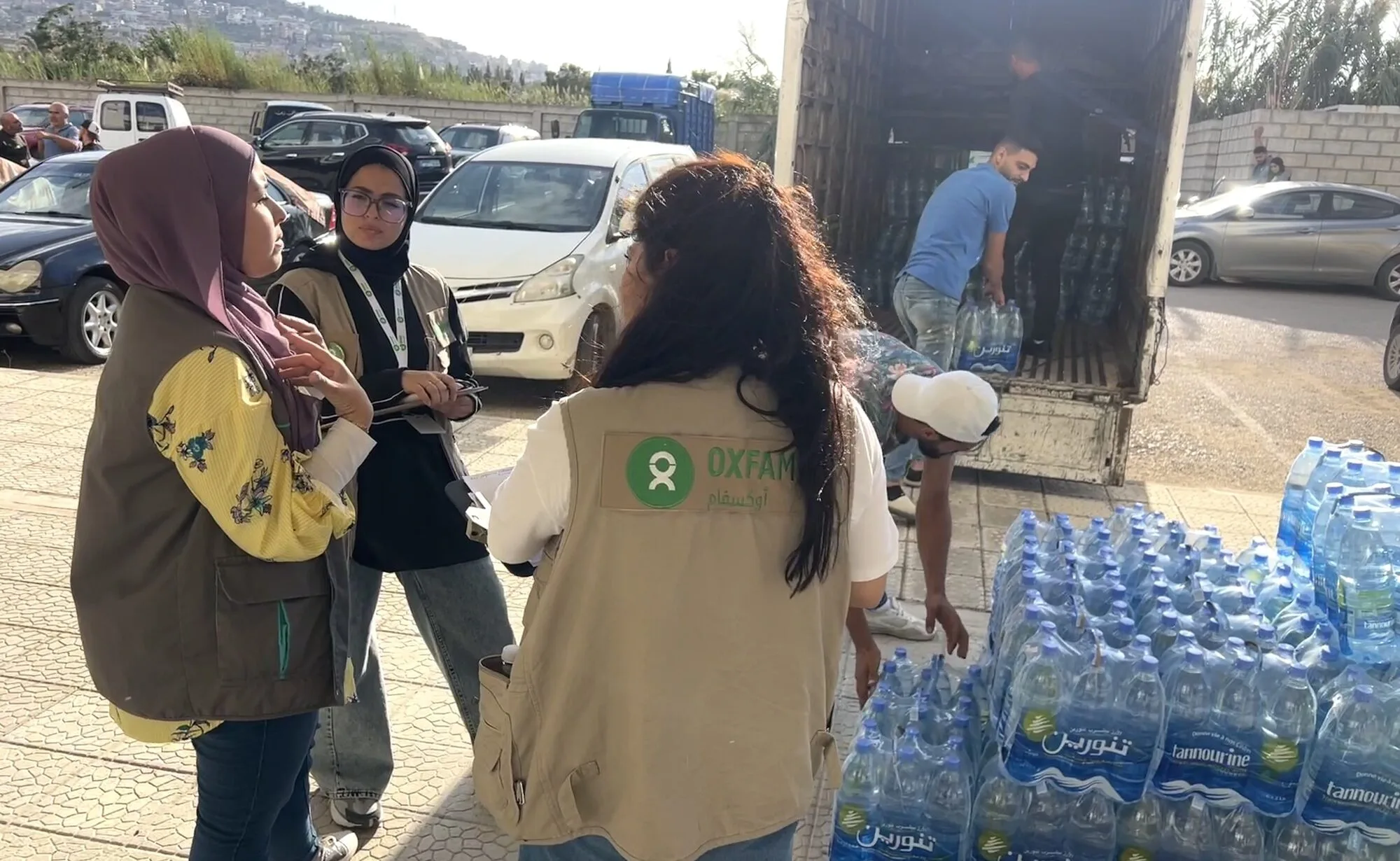
To date, the Oxfam confederation, along with 20 partner organisations, has reached 776,917 people across Gaza with emergency support including food, water, sanitation and hygiene services, emergency cash, essential basic items and protection services for the most vulnerable groups.
After an initial assessment to identify immediate gaps in basic needs, the Oxfam confederation and partners Utopia, SHIFT, AICA and Loyac have begun providing humanitarian aid to internally displaced people living in shelters across Beirut, North Lebanon and Mount Lebanon.
So far, they have reached 19,428 people with clean water and sanitation, emergency cash, food, and hygiene and menstrual hygiene kits.
“It’s nothing less than a miracle that I can still hold my children”
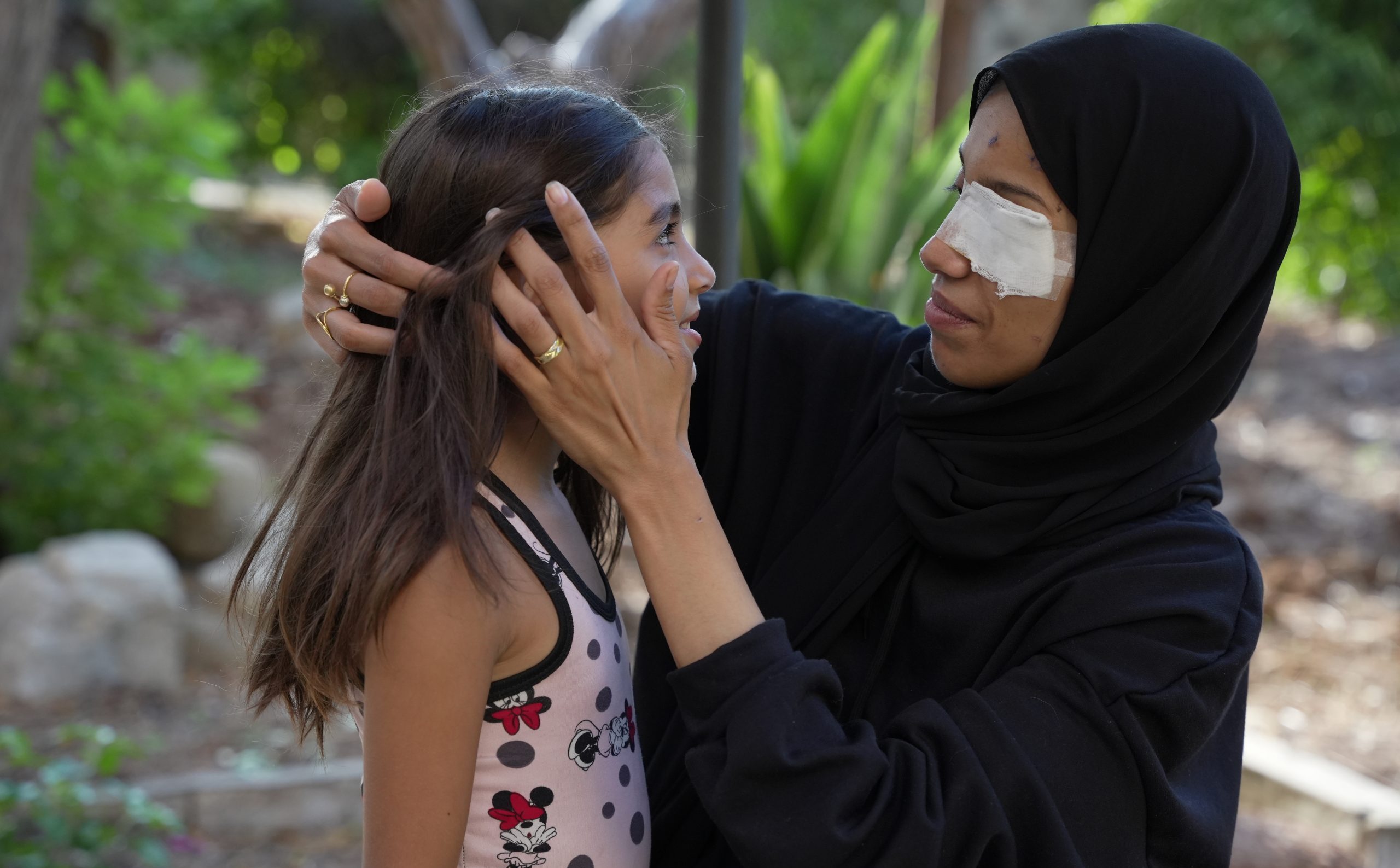
Siham is a 33-year-old displaced woman from South Lebanon. On 23 September 2024, as Israeli airstrikes intensified, one of the strikes hit her home, forcing Siham and a group of seven people, including her husband and two daughters, to flee.
“I put my hands over my children’s eyes in an effort to protect them. I carried my eldest daughter, who is seven years old, and my younger daughter was in my arms while I was barefoot inside the house. I felt like I was walking on something hot; I don’t know if it was glass or missile fragments,” she said.
During the airstrike, Siham sustained injuries to her hand, neck, and eye. She is currently receiving medical support in North Lebanon, where she is staying in a collective shelter for displaced people. She worries about the possibility of losing her sight permanently.
After the strike, her youngest daughter did not speak for five hours due to the shock. Siham is doing her best to protect and comfort her. However, her youngest daughter has trouble sleeping and is frightened by loud noises such as fireworks, which remind her of the bombings.
“It’s nothing less than a miracle that I can still hold my children. Anyone who sees how my house was destroyed, levelled to the ground, would say we could never have made it out alive.”
Oxfam and partners work under extremely challenging and life-threatening circumstances to deliver aid to their communities, especially in Gaza. The need is still much greater than any humanitarian effort can meet. A permanent and immediate ceasefire remains the only true solution. To add your voice to the call, sign our ceasefire petition.

